I don't know that I've felt so sad, consistently before, at any other life stage. The sadness is not for naught though, and it feels stretching. I can feel myself slowly growing into a better person because of it, which encourages me and makes me know that the blue is valuable because it shows the yellow to be all the more yellow on those days where the sun shines. Today, again, I spent the morning at the senior's home. Today it felt as though my heart broke. The sadness there is sometimes nearly palpable.
I was at the end of my shift and was sort of numb already, because of all the sadness I'd encountered in the drab little rooms. I held beautiful little ladies in my arms today as they sobbed with dignity. The word lady was sadly pluralized today. Before this place, I'd never known up close what it looks like to wish for death. So many of these lovely old people aren't negative, they aren't cranky, but some of them are just depleted of any wish to continue on.
At the very best of times, I don't have an overflowing emotional reservoir to draw from in the support of devastated people not able to continue on alone anymore. To say that I'm not a shining example of EQ is an understatement. I focus on task more than on people. I can do happy, but there's very little else in my emotional repertoire.
And so as I made my way to the front door after having signed out in the volunteer book, I felt like a dishrag that someone had wrung out - and ruthlessly at that. As I walked along the corridor, a dear little lady with pink-rimmed eyes came to her doorway. I know now that she was looking for some human contact. I mustered some cheer and asked her how she was. She bowed her frail little head and said How am I? The Lord took my best friend away from me yesterday. Her shoulders seemed too tiny to bear such a burden and I felt that familiar ache in the back of my throat and even tears sprung to my eyes. I looked over her shoulder and saw her husband's empty bed, stripped bare to the mattress. The sight of it was harsh even to me, and I had hardly known the man. The unthinkable had become real; he'd died and left her. We walked into her room together, united just for a moment in shared grief, hers gapeing and monstrously large, mine amateur but growing as I touched her frail arm. I hugged her for a long time, and gathered what remnants of self-control I had left about me as I did. She told me over in various different ways how she wasn't sure how she'd go on now that he was gone. I knew that she would, though. She had the obvious markings of a survivor. She'd been a single missionary in India for a large chunk of her adult life and had only met Seth later on in life.
As she talked about him, I could see that she was one of the few who truly counted her days with him as blessed. She cherished him but didn't wax on dramatically about it. Her love - her quietly deep love - for him was enough in and of itself and she clearly didn't feel the need to dramatize about it, or about her loss of a life's partner. The dignity of it - and of her - made me feel stabs of shame for all of my own repeated displays of silliness through life. She was beautiful, truly beautiful, in that moment and when it's my turn, I want to be just like her.
I wonder what it's like to wake in the morning one day, to look over at one's husband - a many decade's old friendship - and to see him lying there lifeless and gone from this earthly place. Sadie asked me to pray that God would give her courage this week and it strikes me that she's not the only one who needs it. Please pray for this dear lady if you are one who does.
My thoughts on old age spread through my consciousness like a science experiment carnation, steeping in food coloring saturated water. My way of looking at life feels changed now, just as the white carnation morphs into a bright red one.
I find myself looking at life now from a slightly, but importantly altered vantage point. Now when I get motioned over by Oliver's teacher to debrief about his day (and we only debrief on those less-than-enchanting days, it seems), though my stab of annoyance with this spirited child still struggling for that elusive self-control isn't vanished entirely, I feel an awareness of his beautiful vibrance blanketing the lie he told about kicking his friends' lunch box as it sat - innocently - on the floor. I hate that my little boy told a lie, but I'm conscious today - first - of the enormity of his joy. I hope I don't forget anytime soon that these days are fleeting. I hope I don't forget to see my wonderful child before I see the fib he tells.
Perhaps you've gathered that my times at the senior's home loom large in my head all week long, long after I've entered in my special numerical code to open the main door to allow me to leave the premises. It now dawns on me that my freedom to do so isn't for just anyone.
I come home afterward to my empty house, and feel again that dogged catch in the back of my throat as I replay my morning's memories. Today when I asked one beautiful, old soul how I could be praying for her this week, she looked at me with fervent, watery eyes and responded: please ask God to let me die so I can just go home. How does one go about praying that? I suppose I just take her words at face value and ask for what she asks for, knowing that a pain-plagued lady on the cusp of her 94th birthday knows what she needs and doesn't need. My 38-year-old naivete doesn't really have a role to play here. What on earth do I know about anything? Visiting these people so intimately familiar with chronic pain and suffering helps me see that I don't know nearly as much as I used to think I did. Frankly, sitting down at the keyboard after a time there seems more than a bit rich to me now. Is it me who has to press my call button, trying to summon an overworked RN to help me lay down in my own bed because my back pains me so badly I can't sit upright in my wheelchair any longer? Am I the one plagued with bedsores that just won't heal? Do I drool down my own front, fully aware of myself as I do so, poignantly lacking the requisite ability to stop this dignity defying thing?
Today this fragmented lady told me the terrible story of her own son's death as a little boy, who - naughty thing - climbed up on the school roof to fling whirly-gigs off its edge, though he'd been told not to countless times before. The floating, twirling, exciting beauty of it was too much temptation for him to resist. Roofs are dangerous places for seven-year-olds, invincible though they think they may be. This aching, remembering woman is fragmented not just because her body won't work properly anymore, but also because she's wheeling around on this earth with a prominent segment of her heart missing. That chunk of it went away when her littlest man did. I think he must be hurling whirly-gigs in Heaven today, only safely now. Soon, I'm going to stop typing so that I can ask God to help his Mama join him. I can tell that she misses him a lot.
I've met a new friend who also allows large chunks of her days to be eaten up by a process that sometimes finds her dazed, bewildered and just a bit stunned at how much time has just somehow escaped her notice. She's a writer. And far cooler than any claim to fame that I could ever hope to bandy about - she's got the very same name as a famous and published author. She good-naturedly tells her - clearly favorite - joke over and over again, asking me if I don't recognize her name because she's so famous. Only the spellings are different. That and the fact that this particular lady is confined to her wheelchair in the senior's home, where she's lost control over her bodily functions.
This lady is a living, breathing, life lesson. We sit together in a room where I do typing for her because her hands have curled in on themselves, making the task very difficult for her. Because she prefers to have the door closed for privacy, we sit together in the tiny space that is her room, breathing in the organic smells her rebellious body persists in creating, despite her own best attempts to wrangle some control into the equation. And as we do, she is dignity Itself. I want to be just like her when it's my turn at this life-stage. We don't comment on the smells rampaging angrily about the room, of course, and though she can't even lift her head comfortably up off her chest, she tells me about her childhood, which is a place in her memories that feels most familiar to her now.
Though she was married for decades and decades and had five pulsating, life-filled children of her own, the Figure of Great Importance now in her thoughts and conversation is her larger-than-life stepfather. She'll talk about him endlessly if you're willing to listen. He - and his superhero-esque shenanigans - is whom she writes about. I learn a lot about him as I re-type the tattered pages telling his story.
I wonder if these twilight people revert back to their childhoods because it was life's happiest time for them or for some other, unrelated reason. Perhaps it's just a bare-bones scientific matter of the newest neuro-pathways degenerating first. I wonder if people shackled with unhappy childhoods revert back to that time in their lives, too. This idea strikes me as being singularly sad.
But this happy, writing, Coca Cola-imbibing woman seems anything but sad. I love that if it is her lot to dwell in a place not the present, hers is a happy place filled with people she loves and admires. She spends her days, crippled but mostly content, doing what she loves behind the privacy of a closed door. People offer her up the dignity of knocking before entering and she is treated well by all who enter.
Before I leave, she asks if I would trouble myself to open up the plastic wrapper on the new mouse pad she's just ordered from a nearby drugstore. She chuckles as she watches me do it because she gets an artless kick out of the fact that on its surface are two kittens who can now play with the computer's mouse. We should all be so lucky to find joy so easily and in such small things.
She lies in her bed, trapped there, despite her wish to be elsewhere. Her wig sits neatly on the pillowcase next to her and without it, she looks impossibly tiny and helpless. The wig lends her gravitas somehow, even though the brazen, false brown of it is anything but flattering. It somehow shouts, citizen! community member! contributor! in it's perch atop her head. She looks lonely without it, and much, much older.
I ask her if she'd like a hand massage today but she can't hear. She lifts her head and fumbles with her hearing aid, which has been giving her a lot of trouble lately. I repeat my message with a progressively rising cadence and I can tell when understanding penetrates because she smiles. I think, looking at her, how isolated she must feel from so much of the rest of the world. She pushes her dry hand out to me and I cradle it, thinking how lucky I am to do so. I haven't touched a hand that feels like this in a long time. I feel very aware of the delicate bones just underneath its papery surface. I rub lotion into my own hands first, trying to warm it just a bit and then begin to smooth it over the skin of hers. There are purple blotches haphazardly spread out over this skin and tentatively, I rub them, too. I'm relieved to see that it doesn't hurt her. I chat inconsequentially as I rub and I can see, though she doesn't say so, that she loves it. I don't want you to go she says and I assure her that I've got no immediate plans to do so. Her hands are a microcosm of herself. They are so helpless and unable to salve themselves and yet in such dire need of the very things they can't do on their own. I feel a surge of satisfaction to smooth the unscented lotion into her dry skin and see it transformed for a time.
I ask her about her husband, who has been gone now from her life for far too long. Ah. I loved him. He was a good man. He didn't like to talk much, though. We were married for 34 or 43 years. I can't remember which one. She then proceeds to tell me about the circumstances of his death, which happened at home while he was alone with her. Listening to her story, it occurs to me that each day with my own husband is a gift and that I'm wise to view these individual days together in that light.
As I look on, ignorantly and from the sidelines, it seems to me that old age is largely about the looking back upon life. There doesn't seem to be a lot of present-tense sort of existence there in the senior's home. The happiest elderly people I encounter are the ones who have nice things to look back upon, the ones who enjoyed nice relationships with nice people, the ones who have colored their lives with more primary yellow and less depleting gray. The ones who seem brittle and sad are the ones whose younger lives could probably have been described in the same way. Brittle and sad. Watching it all makes me know in my bones that I want to be one of the yellow ones. Clearly this means that I'd better be sure to color my current life in the same way. These are the salad days that I'll be looking back upon with fondness. I'm going to try to make them as bright as possible, for I see now that they'll need to last me for decades.
Every now and then as a stay-at-home mom, I feel stabs of defensiveness, as though I need justify my lack of a more formal and lofty profession to those more erudite people out there I imagine are judging me. The truth is probably that these people reflect upon me and the role I play in this world rarely to never. As I ponder this, I feel irked with myself that I defer, even rarely and inside the confines of my own head, to what others think of me. I know my real power comes from from the Hope I have in Christ and the consequent wholeness He brings in me by degrees - sometimes excruciatingly slowly - and not from what others may think of me. And yet, knowing and believing all this, sometimes I still feel these aforementioned stabs. And until very recently all these cerebral wrestlings felt valid and big. Now they've begun to smack of the anguished cries of rich lawyers in love. Because recently I've begun to be acquainted with powerlessness on a whole other level.
I am a youthful first-world person whose limbs obey her every command. When I wish to use the washroom, I simply do so with a blase dignity dependant upon complete privacy. My body is strong and I cook and eat whatever I most wish to on any given day. If I don't feel like zucchini, then I steam asparagus. I remember each of my children and their vivid, noisy stories fill my brain and my kitchen. I have all the money I need and I don't ever have to worry about how I'll possibly get to Walmart to replace my ratty old pants which were my last decent pair. I'm not consigned to pacing hallways, anxiously wringing my softly veiny hands, wondering why my husband won't come pick me up to take me home, wondering even, if he might not love me anymore. In short, I am of the ranks of this world's powerful. In light of this, my silly need to prove my stay-at-home-mom self to those who may look down upon the role seems more than a bit ridiculous.
Before my recent forays to the senior's home - that combined beautiful and exquisitely sad place - I'd never stopped to think about it. I'd taken my power and my freedom for granted, with only the brief blip of an exception in the form of the very occasional flu or migraine to mar my nearly complete autonomy. I now see - blurrily no doubt - how rich I've been and also how stunningly ungrateful. I don't stop in the middle of mopping my floors to note how delightfully pain-free my joints are. I don't wake in the morning marvelling at the powerful beauty of the fact that I am loved. It doesn't occur to me to be thankful for trips to the grocery store that instead, I'm more inclined to gripe about, that allow me to choose whatever I like to prepare and feed my family. The fact that I can afford seedless green grapes seems like a given. My fingers cooperate with my whims and I knit if I feel like knitting or I read with my perfect, cateract-free eyes if I feel like reading. I run and go to Zumba classes with the best of them and now, suddenly, I feel like saying thank you. This power of mine won't last forever. My strong body won't always do everything I wish for it to. Some day it will be my turn to shuffle painfully down hallways that seem far too long. Some day I may have to discontinue my beloved habit of reading because my elderly eyes will no longer allow for it. But in the meantime, I'm thankful for a new awareness of the need to say thank you, God.
She sat alone in her darkened room. The curtains were nearly closed, even though it was already mid-morning. She looked out through the gape between the folds of fabric. I wondered what she was thinking of as I watched her.
I didn't want to interrupt her reveries. She looked intent upon something. But her name was on my list of ladies to visit with this morning, and she looked the very epitome of alone, sitting there in the near dark.
I knocked and she didn't appear to hear it. So I knocked again, loudly this time. The noise felt jarring, more especially so because of the dark room cloaking her. She started and looked at me. I could see a jolt of something that looked like fear in her eyes. Do I know you? she asked. Where am I supposed to be right now? I assured her that she didn't need to be anywhere in particular just now and that I was someone new. She relaxed visibly. I could see that she was relieved to know that I wasn't someone she'd already met and then forgotten. The forgetting plagues her days, my notes tell me. My notes also remind me to never ask her or her contemporaries if they remembered me. This question grates against an all-too-painful reality for many of them. They don't remember anymore and they feel the gap the remembering leaves. The indignity of it.
I asked her about her children and their children and the change of subject is welcome to her. I tell her I'm so happy the rain has finally stopped. She's eager to verify what I say with a look for herself and timidly hints that I might open the curtains for her. I'm happy to do it and the ambiance of the small room instantly changes. Yellow overtakes gray. She has beautiful stained glass ornaments hanging from transparent thread gracing her now opened window. There are dangling, intricate snowflakes she's crocheted herself years ago. We talk about her penchant for craft and then just as quickly, her face changes and she tells me that she has no hobbies because she always worked so much in her life that she never had time for anything like that. I gloss over the discrepancy and ask her about the Christmas cards tacked on her bulletin board. She tells me that she has lots of friends and though I don't believe it, I'm happy that for this one moment, she thinks she does.
Her pale blue eyes seem a water color replica of her real eyes. They're pink-rimmed, as though she's been crying. I want to weep, but I don't, because I have no right to. I swallow back that tightening in the back of my throat because it has no place here today. I see that life has forgotten her and that the young and the vibrant are preeminent. I think when we value the energy of youth so highly, we forget the beauty in her aged cheeks. These cheeks look so soft, I wish I could touch them. The multi-colored afghan laying across her lap captures an important beauty of days gone by. She tells me she's from Oklahoma and we talk about the circuitous journey that's led her from there to here. Her story is full and beautiful and nuanced and full of days of bleak gray and jubilant yellow and I look forward to hearing more about it next week.
I was recently at the senior's home - my new favorite place. I was serving tea and coffee and laughed inside my head when one of the ladies tried to take advantage of my ignorance. She aggressively requested two sugars and two creams in her tea and seemed quite intent on speedy service. Fortunately, the volunteer supervisor who'd trained me emphasized multiple times over that volunteers can't serve any food or drink item to anyone unless they've first checked with an RN. When I did, I found that this little lady was a diabetic looking for a clandestine sugar fix! It reminded me of my days as a substitute teacher when the kids would take eager advantage of my ignorance of classroom rules. My new favorite people group is the 80-plus crowd.
Mesmerized, I watched an unexpected dynamic unfold at the senior's home. I very nearly couldn't take my eyes off the scene. A mean girl reigned supreme.
It reminded me of middle schoolers, vying for social status, self-esteems too trampled to care what means they used to achieve the social significance they slavered after. Those that hurt the most so clearly hurt the most, you know?
We'll say that her name was Elma (it wasn't) and in describing her, we'll say that if you ignored the pinched expression on her face, she looked like someone's beloved grandma (perhaps she is). She had sweetly curled white hair and round spectacles with pretty gold chains securing them to her person for fear, I assume, of misplacing them. She wore a warm purple cardigan and elasticized slacks, as surely all good grandmas do at times, and she was significantly more mobile than most of the rest of the ladies I met that day. Perhaps this no-doubt-coveted mobility was a key to her supremacy over some of the more mild-mannered ladies there. Perhaps mobility is to life in a senior's home what name brand clothing is to life in a middle school. Most of what you read so far is speculation. What I can say for sure, though, is that the way she treated some of the other ladies reminded me very much of how my children act immediately prior to a time-out here at home. Unkind is a word that springs to mind. Bossy is another. And tattling.
My first job of the day was to go to the laundry room and wheel a big bin of freshly washed towels and face cloths to the TV room. When I'd sorted the laundry into manageable piles onto a table I had set up earlier, the ladies began to congregate. I was interested to learn that they (or most of them, anyway) love to do work like this. It's a way where they can contribute and feel useful. As we chatted in loud voices to make ourselves heard by everyone, Elma began to critique. She didn't like the way certain other ladies were folding. I ignored her and chatted obliviously. Elma then ramped her strategy up a notch and her voice raised discontentedly. She looked at me and said She's doing it all wrong! We don't do it that way! It's all wrong! I was fascinated to note that she looked to me as an authority figure of sorts, even though I was a mere volunteer, and brand new at that. But even as a green, green rookie, I could see that she was genuinely upset and I felt a pang of remorse that I had discounted her concerns so immediately. Her voice rose further in a plaintive helplessness and I began to see that maybe the perfect folding of the laundry helped her to carve out some meaning and some order to her existence here. I began to see that mean-spiritedness wasn't the only thing at work. I comforted her in the way that I used to shush a fussy baby pressed close to my chest in a snuggly and said, It's ok, Elma. It's ok. Don't worry. I'll show Margie how to do it your way. It's ok. My heart was touched to see that this approach seemed to connect with her and that she calmed. Her powerlessness was palpable.
Later I served tea and coffee and Elma yelled out emphatic orders every step of the way. The cups aren't in that cupboard. No! Those cups are special. You can't use those. She's not allowed to have two cookies. Don't let her! Honestly, it was all I could do not to laugh right out loud. As they finished up with their refreshments, she announced aggressively to the other quiet ladies in the room I'm going to the chapel now. You should too. Bertha, are you coming? Marta, come along! When I told her we weren't slated to do our exercise class in the chapel for another 15 minutes, she responded that she needed to warm her chair. I thought she was showing a promising flash of humor and immediately leapt at the chance to lighten things up a bit. I laughed and she very scornfully lashed out I'm not kidding. Those chairs are cold, you know!
Ah. It's going to be fun. I truly can't wait.
I've mentioned to you that one of my New Year's resolutions is to volunteer in a senior's home this year. I've now jumped through most of the myriad hoops required in order to do so. Though the hoops are time, energy and even money consuming, I'm pleased to know that they exist. The seniors I'll be working with are easily hurt and the hoops are in place to insure that no one takes advantage of these lovely, lonely people.
Tomorrow, I’m to go to the senior’s home for the first time to volunteer. I feel many things as I think about it. First and foremost, I feel excitement as this is something I’ve wanted incorporate into my life for several years now. Second, I feel some disappointment, as the volunteer coordinator has slotted me in a position I find to be quite ironic. I’ll be folding laundry alongside seniors. I practically fold laundry for a living in my current life. A load spins comfortingly as I type. Mostly I feel happy, though. I’m pleased that they’ve placed me with the seniors I feel best equipped to help. They didn’t place me with the dementia patients and they also didn’t place me with the seniors living in the assisted living apartments, who can mostly fend for themselves and who have the best rate of family involvement in their lives as it is. I’m with those who are well aware of their faculties and surroundings and so are therefore probably most lonely.
I felt alternating pangs of sadness and growing joy when I went in for my interview. The sadness stemmed from seeing the advanced dementia patients sitting motionless in their wheelchairs, mouths gaping as they watched television. Though the care workers were obviously compassionate people trying their best to enhance the lives of these people, everything felt so gray. I looked at the half circle of wheelchairs and read their names neatly labeling the back of each chair and I felt acutely aware of the whole, once vibrant lives those inadequate white labels represented. It felt stunningly wrong to see these mothers and fathers and husbands and wives, artists and entrepreneurs sitting so still before the daytime television that now occupied their existences in a disproportionate way. They seemed sapped of their very selves and yet I learned that many of them have vibrant, alert minds trapped inside those motionless, dependent bodies. Of course this saddens one further.
The growing joy part stems from knowing that I'm taking a step - albeit an infinitesimal one - to do something to build into the lives of some lonely people. When I reflect back on my own life, one of the more meaningful relationships I've yet been a part of was the one I shared with my Grandma Dixie. I loved her with every ounce of my neophyte heart. I knew as soon as I was able to process such things that my Grandma was good. She taught me things that I've never forgotten. It seemed to me then that wisdom practically seeped out of her pores. She knew how to knit and crochet and make pancakes, such pancakes! I thought back then that maybe she was God's smartest person. As I think about her, I think about how in her later years, she was confined to a senior's home and about how unhappy that made her feel. And naturally my thoughts turn to the countless others like her living perhaps against their will in these places. And I want to be with them and do what I can to make them smile, even if only for a moment.
|
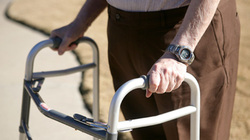
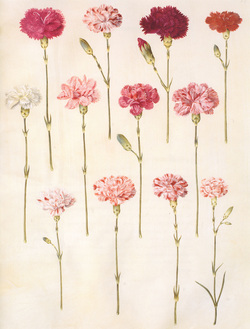

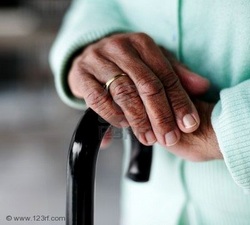
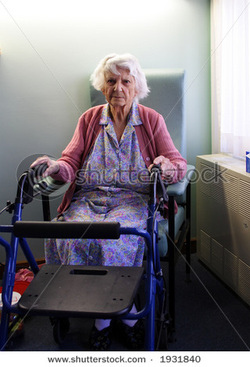
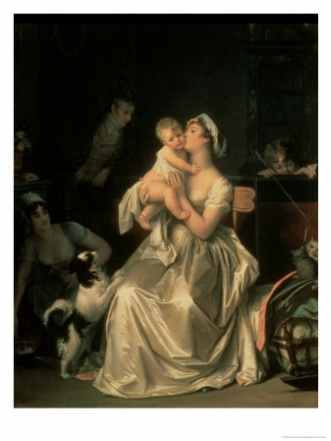

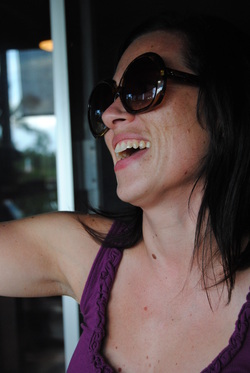
 RSS Feed
RSS Feed